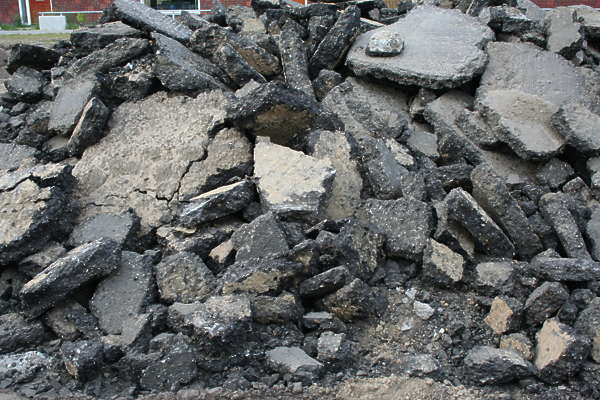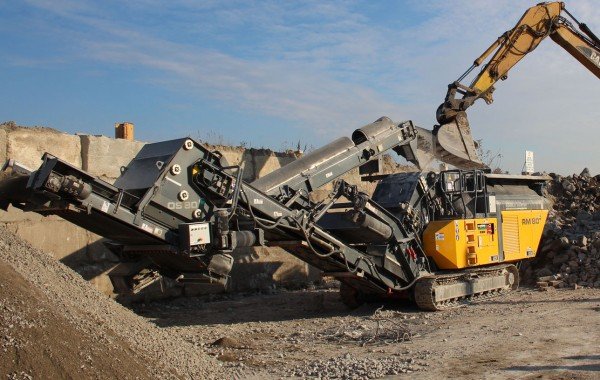Disclaimer: I have not had any conversations with anyone in the city in regards to this matter. All of this information is based off of knowledge I have gained through attending city council or reading the report that Josh Belnap wrote for the upcoming city council meeting.
Roads require constant maintenance that, eventually, leads to old roads being ripped out and new ones being installed. But what happens to all of the old asphalt and concrete when they have to be torn up?

As a function of government, these materials have to be dealt with and, if possible, reused to benefit the city. Our old asphalt had begun piling up on a storage lot. It was suggested by one of our council people that we crush the old asphalt to be used as filler for pot holes and other damaged roads around the city. As our city does not have the equipment to accomplish this, our public works director began the process of figuring out the way forward.

Not the actual asphalt crusher that was used in Kaysville
As Mr. Belnap looked into rental of an asphalt crusher, he found that many companies would not even rent privately due to the complexity of the machine. Rather than invest the city man power to run a machine with high liability, he decided to get bids for companies to complete the crushing for the city. He sent out a request for proposal (RFP) to multiple companies to bid the city in at least one of three areas:
- Price per crushed and processed cubic yard of asphalt
- Price per crushed and processed cubic yard of concrete
- Price for renting crusher
Three bids came back. This is where the mistakes began to happen. Of the three bids, it appeared that one bid came in markedly lower. However, in calculating the total projected cost, the line item for renting the crusher was missed (a $28K fee) due to a belief that the bid would come back as either a price/ crushed OR price for rental. When the bid deadline passed, by Mr. Belnap’s own admission, he made a mistake and forgot that any expenditure over $25K required council approval. He selected the bid that appeared to be the lowest and entered into an agreement for the work to be completed.
When the invoice came due, Mr. Belnap stated that he was surprised by the total amount owed. It was then that he realized his first mistake. In recalculating, he found that of the three bids, one with a different company would have come in $7687 lower. (The third would have come in $366 higher.) As this expenditure did not previously come before council for approval, this miscalculation completely falls at the doorstep of the public works director.
Tomorrow the discussion about this bid could range from approving and moving forward without much discourse all the way to a more stringent disciplinary action. As with the purchase of the plow truck, this issue will also have questions attached.
- Does there seem to be any ulterior motivation for granting the bid to a company without first seeking council approval?
- Does Mr. Belnap have a history of this type of mistake?
- Is there enough budgeted money to cover the mistake?
- What is the cities policy for disciplinary action in these circumstances? What standard do we want to set?
Again, I look forward to a balanced discussion about what is best for the city, the tax payers and our city employees.

